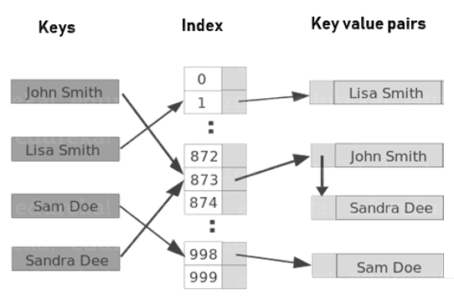Unalterable Strings: A Trick Component in Ensuring Data Consistency and Dependability
In the realm of data monitoring, the importance of immutable strings can not be overstated. The principle of unalterable strings goes beyond simple triviality; it is a linchpin in the complicated web of information administration.
The Idea of Immutable Strings
Unalterable strings, a basic idea in shows, refer to strings that can not be customized once they are produced. In essence, as soon as a string value is designated, any kind of procedure that appears to customize the string really creates a brand-new string. This immutability makes certain data uniformity and integrity in applications, as it prevents unexpected changes to the original information.
Benefits in Data Consistency

Information consistency is crucial in various facets of software development, including data source administration, multi-threaded atmospheres, and distributed systems (Why are strings immutable in Java?). Unalterable strings add considerably to accomplishing this uniformity by preventing data corruption due to concurrent gain access to. In situations where several procedures or strings engage with the exact same information all at once, immutable strings function as a safeguard versus race conditions and synchronization concerns
In addition, the immutability of strings streamlines debugging and screening procedures. With unalterable strings, designers can trust that when a string is set, it will continue to be unmodified, making it easier to map the resource of errors and making certain that test instances produce consistent results. This reliability in data dealing with ultimately causes much more robust and stable applications.

Carrying Out Immutable Strings
Ensuring the immutability of strings requires a thoughtful technique to their execution in software development. One essential method is to make string classes in such a way that protects against adjustments as soon as a string object is created. By making strings immutable, developers can boost data consistency and dependability in their applications.
To carry out unalterable strings efficiently, designers should prefer creating brand-new string items instead than customizing existing ones. This method ensures that as soon as a string is assigned a value, it can not be changed. In addition, any kind of operation that shows up to customize the string ought to create a new string with the wanted modifications rather of changing the initial.
In addition, utilizing immutable strings can streamline concurrency administration in multi-threaded atmospheres. Given that immutable strings can not be transformed after development, they can be securely shared among numerous threads without the risk of information corruption.
Duty in Integrity Guarantee
In software development, the use of unalterable strings plays a crucial duty in making sure the integrity of data procedures. Immutable strings, as soon as developed, can not be changed, ensuring that the data they represent continues to be constant throughout the application's implementation. This immutability residential or commercial property gives a degree of assurance that the data being processed will not be inadvertently transformed, bring about unforeseen end results or errors in the system.
By integrating unalterable strings into software program layout, programmers can boost the reliability of their applications by lessening the threats associated with mutable data - Why are strings immutable in Java?. Immutable strings aid in preventing data corruption or unexpected modifications, which can be particularly essential when taking care of delicate details or when information integrity is paramount
In addition, using unalterable strings streamlines concurrent processing, as numerous threads can securely access and share string information without the danger of one string altering the material while an additional reads it. This facet adds significantly to the total reliability of the software system, making certain regular and foreseeable behavior in information handling procedures.
Applications and System Integration
The seamless integration of immutable strings into different applications and systems is crucial for making certain durable information uniformity and integrity throughout varied technical settings - Why are strings immutable in Java?. Unalterable strings play a critical see here function in boosting the integrity of data exchanges and interactions within complicated software application ecosystems. By incorporating immutable strings into applications, programmers can mitigate the dangers related to information meddling, unauthorized modifications, and unintended alterations, thus strengthening the general protection pose of the system
Immutable strings can enhance interoperability in between disparate systems by supplying a standard layout for information depiction, allowing a lot more efficient information handling and exchange protocols throughout interconnected platforms. By taking on unalterable strings in applications and system assimilation processes, companies can fortify their data infrastructure and support the reliability and consistency of their details assets.
Verdict
In conclusion, immutable strings play a vital function in preserving data uniformity and dependability in numerous applications and system integrations. By guaranteeing that strings can not be altered once produced, the integrity of data is protected, decreasing address the danger of errors and incongruities. Carrying out immutable strings can dramatically boost the integrity of systems, eventually bring about more reputable and exact data processing.
